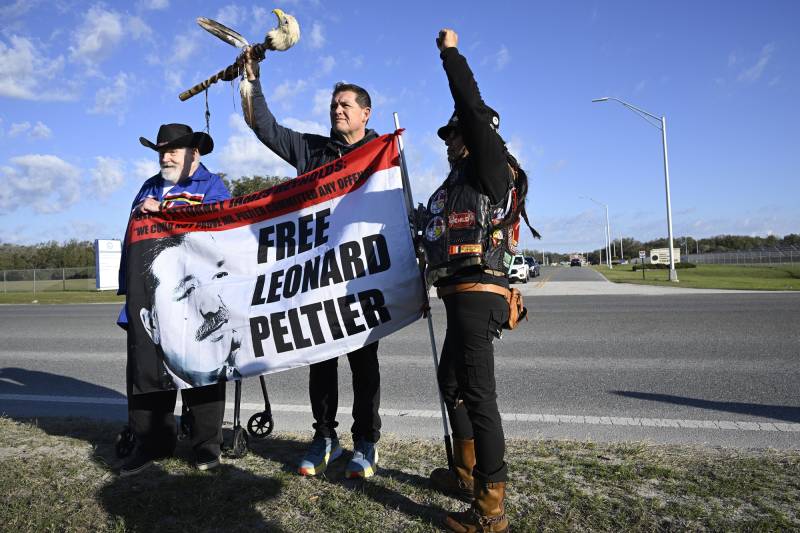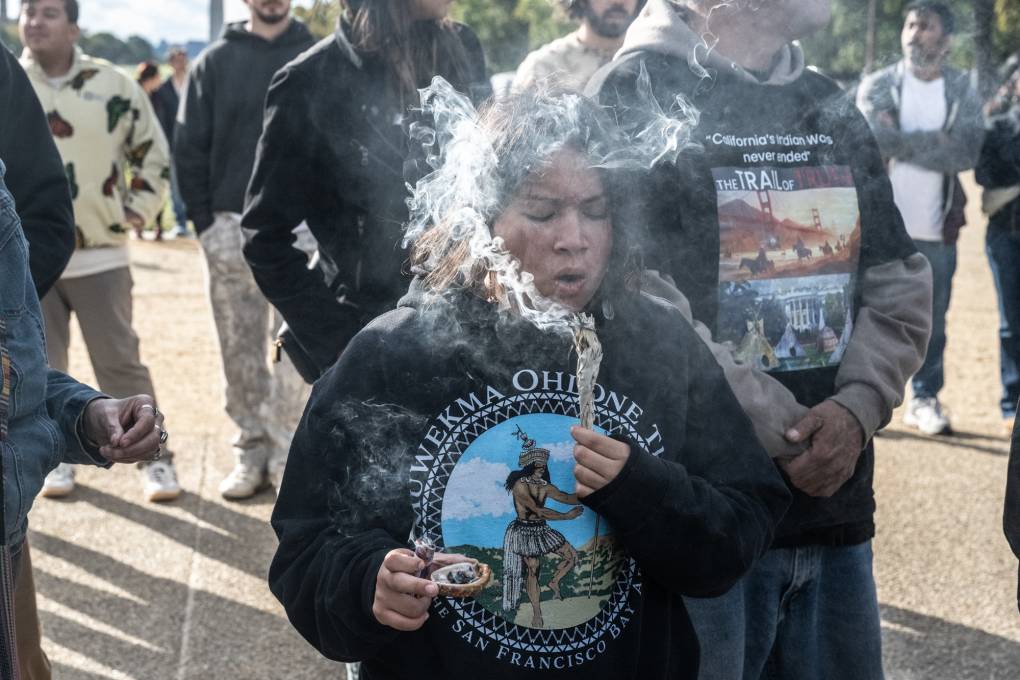Adam Villagomez was only a child when his cousin Leonard Peltier was convicted in the killings of two FBI agents during a 1975 shootout, but he said Peltier’s story is like the story of his life — and that of every other Native American.
“For him, it started with all of the governmental policies that affected our families — the relocation, the termination, the reservations, the boarding schools,” said Villagomez, who lives in Sonoma County. “Everybody that looks as it as a Native, it’s the story of all of our lives, of our family.”
Peltier, a Native American activist and enrolled member of the Turtle Mountain Band of Chippewa Indians in North Dakota, was released from prison on Tuesday morning, ending nearly 50 years of incarceration after then-President Joe Biden commuted his life sentence last month. The 80-year-old, who has maintained his innocence, will be allowed to serve out his sentence on house arrest in North Dakota.


